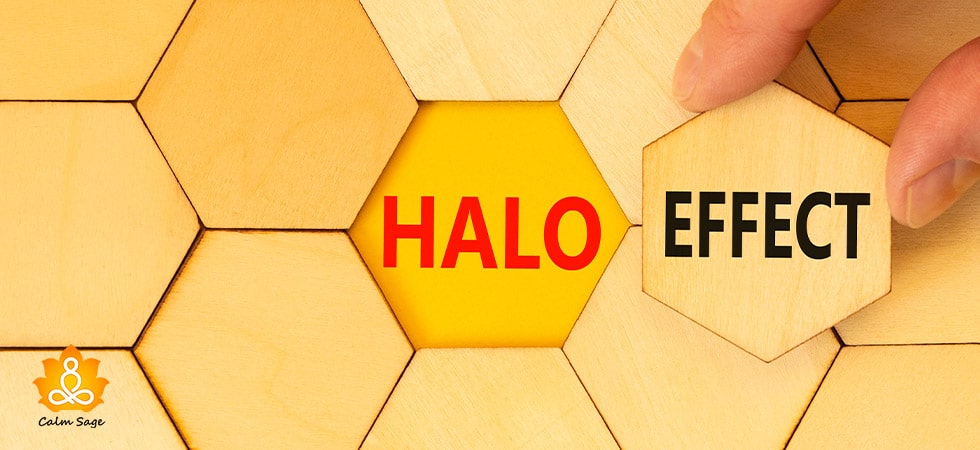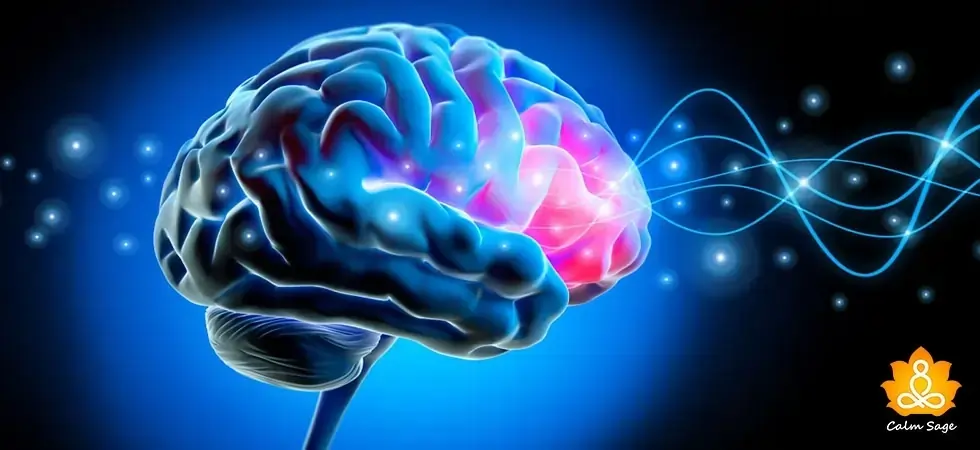Understanding The Psychology Of The Halo Effect Or Halo Error

The halo effect is a common effect bias wherein we assume or evaluate someone’s personality based on their specific trait. We all have done this right? For example, I had a great crush on a celebrity, I thought he was so smart, nice, and perfect until and unless I met him in person for an autograph signing, I found him really rude or arrogant! This is how the halo effect works! It makes us evaluate a person’s personality based on impression.
The psychology of the halo effect exactly describes how we perceive someone’s personality on the basis of one single trait. In today’s world, if we see a successful or attractive personality, we also perceive automatically that they must be funny, kind, and intelligent. Keep reading this blog to learn more about the halo effect and how to beat it mindfully!
What is the Halo Effect?
The halo effect is simply based on the “what looks attractive is good.” It’s a type of cognitive bias that people usually have related to attractiveness level. It can also be referred to as the “physical attractiveness stereotype.” Generally, physical appearance can be a great feature to predict or assume someone’s personality.
For example, people who are more extroverted or sociable are considered to be likable and intelligent. Overall, the halo effect bias works on the perceptions of one quality or physical trait that leads to the judgment of other qualities and complete personality as well.
When you start perceiving everyone from the halo effect psychology, you also start casting them through a similar light. The “halo” created by your perceptions itself uses the equivalence to describe other perceptions.
Real-Life Examples of Halo Effect
- During baptism, bathing babies in a heavenly light is a halo effect portrayed over a saint’s head to establish a new identity.
- In classrooms, well-behaved students are perceived to have bright and motivated futures.
- In restaurants, the most attractive servers are provided with great tips.
- During examinations, good writing is perceived to be a great factor even if the objective quality of the content is poor.
- A customer’s love for a certain product might lead them to choose the same brand even if the quality has been dropped.
Fact-Check Related to the Halo Effect
- The opposite of the halo effect is the “horns effect” wherein the first perception creates negativity around the product or person.
- Halo effect bias is most commonly used in the field of marketing. For example, if you tag a food product as “healthy or organic”, you’re likely to market the product easily.
- The term “halo effect” was coined by psychologist Edwin Thorndike in 1920.
- The halo effect distracts people from reality. In today’s world, people prefer more glossy things over quality.
- If you want to form a long-term relationship with someone or want to work in a company for a longer time, it’s important to diffuse the halo effect and focus more on reality.
How Does the Halo Effect Impact Various Grounds of Your Life?
Here’s how the halo effect may have an impact on different grounds:
1. Education
Research shows that halo effect psychology plays an important role in educational settings. As teachers might only show interest in bright, well-behaved, or attractive students.
Research shows that teachers also keep high expectations from attractive children. Additionally, the halo effect also influences behaviors, teaching patterns, and treatment towards students based on their attraction level.
Moreover, children are also involved in the halo effect bias. One research showed that children develop bonds with teachers who are more appealing, likable, and attractive.
2. Workplace
The halo effect also plays a significant role in the workplace. Research shows that the halo effect can affect performance, reviews, and appraisals of employees. Managers or supervisors tend to have a better bond with people who are more enthusiastic, positive, and energetic.
They prefer reviewing those employees based on enthusiasm instead of rating them on the basis of work performance or contribution in the work setting. Some attractive employees overshadow employees who are excellent at their skills.
Moreover, the halo effect also has a great impact on the income. For example, pretty or attractive food served at a restaurant earns more tips as compared to unattractive servers. I found one study that talked about how attractiveness level increases someone’s self-confidence, overall income, and well-being.
3. Marketing
The halo effect has a lot to do with the field of marketing. Marketers take a lot of advantage of the halo effect for selling their services or products.
For example, when our favorite celebrity endorses a specific product, we positively evaluate perceptions about that product.
Another common example of the halo effect in marketing is that all food products come with a tag of “healthy and organic” which makes it more feasible and buyable.
4. Sentencing Crimes
Research shows that attractive criminals receive lenient penalties over unattractive criminals with the same crime. The societal perception of attractiveness plays an important role in sentencing crimes.
5. Recruitment
During recruitment, people with flexibility and mental strength are given priority over people with skills and excellence. Someone’s positive quality can really determine if they are going to crack that interview or not.
6. Dating
Of course, attractiveness and dating are related! People who are more likable, attractive, sociable, and kind get partners easily. Someone’s first impression can play an important role in deciding whether to date or pass.
How Can You Beat the Halo Effect?
Here’s how you can tackle the halo effect and train yourself to evaluate a personality on the basis of their skills, aura, and energies instead of attractiveness.
1. Be aware and observe carefully
By building self-awareness you can beat halo effect psychology. The process of self-awareness might start with finding yellow flags or red flags in a person. Remember, do not follow past judgment errors while forming a new relationship with someone you want to go exclusive.
2. Slow down and avoid passing judgments
Whenever you meet a new person, do not allow your judgments to come out so quickly instead slow down, take a deep breath, observe everything carefully, and make your decisions mindfully.
In the context of dating, prolong the decision-making process and focus more on the values you share with each other.
3. Go systematically then decide
Sometimes, we decide so quickly that we don’t think even twice, therefore, try to bring in the analytical reasoning approach, and consider every trait carefully before making a choice.
4. Listen to your instincts
Meanwhile, follow your inner critic as well because sometimes, your inner critic does not lie as it can catch the feeling vibe. In the context of recruitment, if you feel that the candidate is less deserving (on the basis of attraction level) but has a positive growth mindset and skills, follow your instinct and hire them.
5. Be kind
In order to diffuse the halo effect completely, be kind to others and yourself. Because, sometimes, we judge so quickly and regret it later. Therefore, be kind to others and radiate positive vibes.
A Word from The Author: Choosing the Right Path!
Be it a relationship, workplace, education setting, choosing the right politician, or buying a product, try to evaluate someone’s personality on the basis of their performance, generosity, or positive energies.
Before assessing someone’s personality, mindfully observe everything about them, so that you can make the right decision or perception. Beat the halo effect and let your decisions speak wisely!
I hope this blog helps you understand the halo effect bias. Comment down and share your views on the same. For more such content, connect with us through all social media platforms.
Thanks for reading!




















